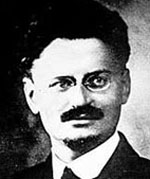Understanding History
SchemasThe extreme example of imported presuppositions is the applying of schemas to the evidence. Many schemas are based on more or less perceptive observations of one culture or period, which are then elevated into comprehensive assertions about that culture or all cultures. Modern schemas are often predictive: they look toward the triumph of a particular idea or tendency. They argue that history is moving in some particular direction, or responds in a constant way to some guiding factor. Such assumptions are held by many historians, and those ideas, like any ideas held by anybody, are proper data for history. As a grounding for historiography, they are pathological.
Schemas are of many sorts. Here are some; be on guard against all. One way to be on guard against them is to note that, except as an observed local tendency, each of them refutes the others. This is the corollary of our suggestion, above, that a schema is an invalidly extended local observation.
- Devolutionary. The Eden model of a primitive paradise from which man was later banished; Hesiod (Erga 106-201) with his declining Five Ages of the world. There are many devolutionary schemas in the Jwangdz.
- Cyclical. Dzou Yen's Five Element succession, Parkinson's theory of the size of the British Cabinet, periodically restored to functionality. The early Chinese theory of successive losses of the Mandate of Heaven by earlier dynasties. The later Chinese empire as a whole is often thought by modern observers to present a cyclical pattern, one dynasty stagnating economically or otherwise, and then being restored by the appearance of a successor dynasty. Chi Sywaen-wang in 0312 assigned a group of thinkers to investigate the causes of state rise and decline, on the background understanding that in historical experience, states had tended to rise, but not to maintain their success, and to end in decline. Indian theories of rebirth find their place here.
- Linear. Chinese orthodoxy tends to claim that China has always been the same, from the present back to the Neolithic. All societies to some extent minimize the extent to which their present condition is an outcome of an earlier growth process. The static model of physics, whose laws are thought to be permanent and universal.
- Catastrophic. One event is held to have changed human history permanently. The Lisbon Earthquake, the Industrial Revolution, the refutation of Christian theology by European science, have all been offered as historical thresholds of this sort. This has analogues in the Freud's catastrophic theory of the individual personality, and (more positively) in the sudden enlightenment available in the meditation tradition. If its background Eden theory can be overlooked, Christian tradition tends to assume a single future catastrophe: the Apocalypse, which will bring the world as we know it to an end.
- Evolutionary. Some look to the growth of rationalism against superstition, and others (like Darwin) to the ever more complex evolution of living things. This is the optimistic counterpart of the Devolutionary group.
Probably all of these rest to some extent on observation, and thus have their place in the historian's repertoire of interpretive models. But each of them refutes the others as governing the whole of history. History (that which happens) seems to present at the same time aspects of change and fixity, of advance and retreat, of disasters and also of recovery from disasters.
One of reason for rejecting such schemas as the Marxist stages of society is that other societies do not go through the same stages in the same order. Slave labor, for example, was not confined to Rome; it was a mainstay of the American South until 1865 and of the German industrial base in WW2; it remains embedded in the Gulag systems of modern Russia and China. We find it useful to make it a principle of history that sequences are not constant. It is instead useful to ask what variations of sequence, or what failures of one sequence to be fully replicated in another historical situation. There is also the complicating effect of human consciousness. People at one stage of development, knowing of other stages available to them in contemporary life, may simply skip the preceding situations. Modern weapons are not limited to modern states, but have proved very effective for modern tribes and pathological individuals, thus changing the map of war. In a different direction, Trotsky extracted from the industrial histories of England and Germany what he called the Law of Combined Development: the advantage of not being first. The early expensive stages are bypassed, and the more efficient mature stage is copied directly. The Marshall Plan replicated this pattern by rebuilding the European steel industry at a much higher state of efficiency than the American steel industry of that time, leading to the decline of the American steel industry.
Let the careful historian thus be patient with the world. Ranke probably viewed Lutheran Christianity as, or as containing, the ideal to which human history in general had been aspiring. But if so, he was content to let that grand conclusion emerge from the facts of history as he was concerned to recover them. A comparable confidence, that honesty with the evidence is the best way to detect any grand design, may be recommended to present and future practitioners.

We may make a final recommendation in favor of knowing more than one thing, as a basis for constructing laws governing everything. That there is some degree of regularity and repetition, and also some moments of drastic discontinuity, will not be denied by any observer. To put oneself in the way of making such observations, and following them up effectively, nothing is better than a conscious awareness of Comparative History. It is a forlorn enterprise at present, but perhaps capable of development, if energy could somehow be brought to bear on it.
7 Nov 2000 / Contact The Project / Exit to Outline Index Page

